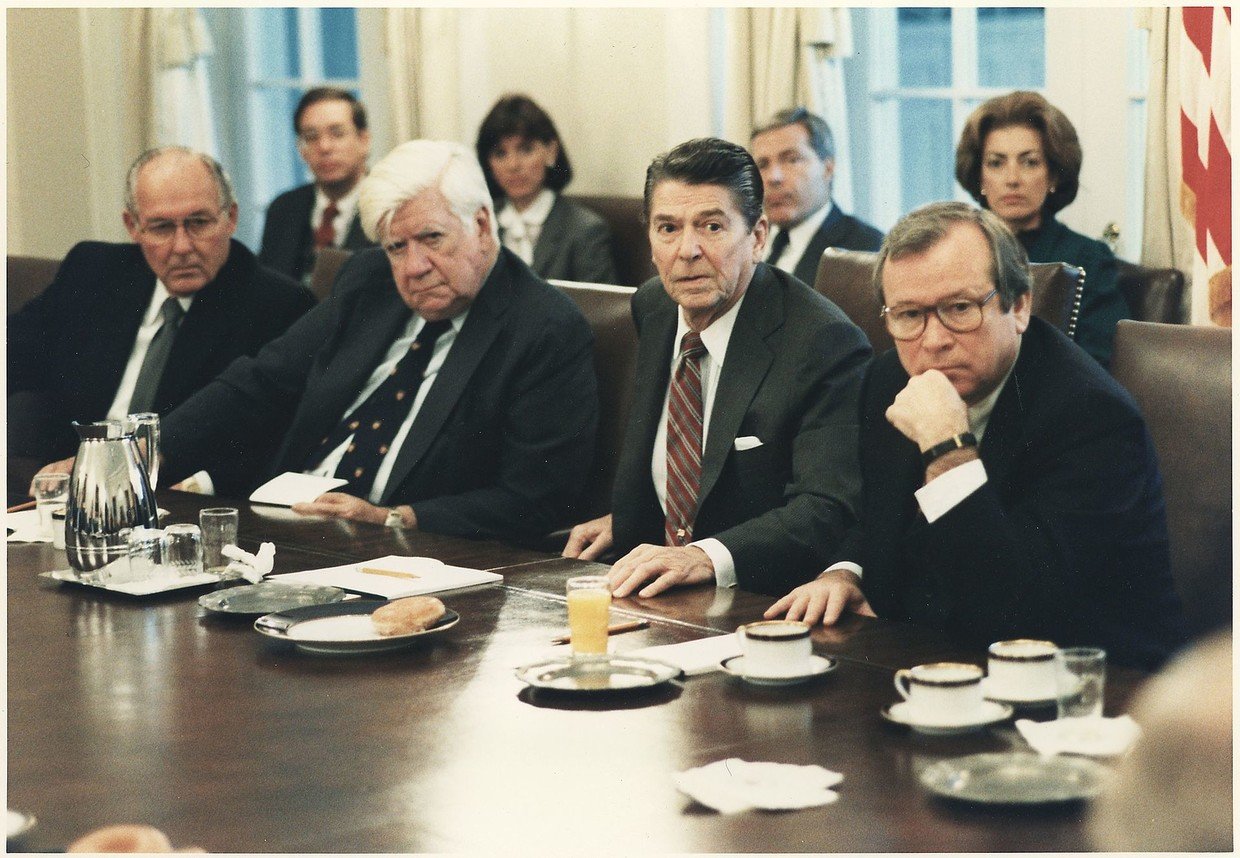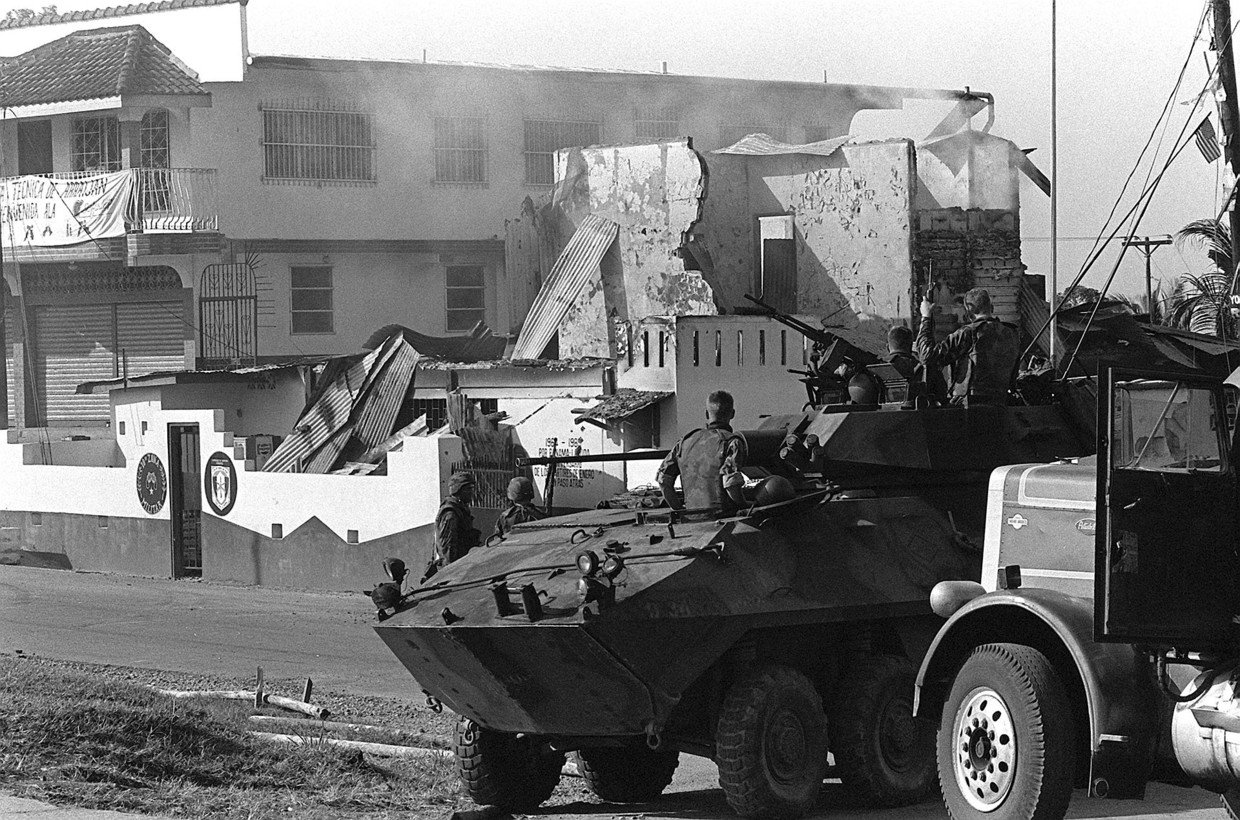Make Latin America Great Again? On the REAL chances of a US invasion of Venezuela
Speaking on the crisis in Venezuela, US President Donald Trump said that “a possible military option” is on the table – but is the US really preparing to attack?
Certainly, planning and implementing a military invasion operation of this scale is an easy task for the US Army. They might not even need to involve any of the military bases they have in the region, such as Soto Cano Air Base in Honduras, Guantanamo Bay Naval Base in Cuba, and Fort Buchanan in San Juan, Puerto Rico.
Only 2,000 kilometers separate Caracas from Florida. The distance is no serious obstacle to the present-day United States Armed Forces, even if they have to make a stop at any of the air bases in the Caribbean.
Also on rt.com Trump confirms use of US military in Venezuela among ‘options’ on tableThe United States Armed Forces consist of the Army, Marine Corps, Navy, Air Force, and Coast Guard, so just take your pick – any of these or a combination would be fit for the job, with all their equipment, machinery, and well-trained highly experienced personnel. The Military Sealift Command is more than capable of delivering all the necessary resources and supplies to any destination.
So hypothetically and quite realistically, it could take the US military under 24 hours to plan this operation, and just a few more days to get the forces to the site, ready and on standby. All in all, I figure the US could take down the Bolivarian National Armed Forces in less than a week.
Courage and valor wouldn't help in this case, as passionate as the Venezuelan soldiers might be about their homeland. The basic law of war would undoubtedly prevail, and victory would be seized by a bigger force.
In other words, the chances that the Armed Forces of Venezuela could put up real resistance to a US invasion are infinitely small – especially since Washington has some experience in running such ops in the Caribbean.

Consider, for example, the 1983 US invasion of Grenada, codenamed 'Operation Urgent Fury'. Following appeals made by the Organization of Eastern Caribbean States in response to a bloody coup d'état in the country that led to execution of the previous revolutionary leader Maurice Bishop, the Reagan Administration quickly launched a military intervention, partially justifying it with concerns over the safety of US citizens on the island. The invading force consisted of the US Ranger Battalions and 82nd Airborne Division paratroopers, the US Marines, Army Delta Force, and Navy SEALs. The operation resulted in a US victory in a matter of four days.
There was also the 1989 United States invasion of Panama where, as in the case above, the US acted upon concerns over the lives of 35,000 US citizens living there, and its intent to "restore democracy." Or consider the US military intervention in the Dominican Civil War in 1965 that started as an evacuation mission and turned into the large-scale 'Operation Power Pack', aiming to overthrow the Francisco Caamaño government. Clearly, the United States has rich experience in "restoring democracy" in Latin American nations.
Also on rt.com Maduro to Americans: You are bigger than Trump, don’t let him start ‘Vietnam’ war against VenezuelaThe US will not repeat itself
This time, the US almost certainly will not launch a direct military intervention in Venezuela. The sky above the Bolivarian Republic is unlikely to one day be filled with the white freckles of parachutes of the 82nd Airborne Division or helicopters of the 101st Airborne Division, and its sandy beaches probably will not see the boots of the US Marine Expeditionary Force. Again, a classic (Grenada-like) scenario for the start of military hostilities is doubtful.
First of all, it could lead to the most undesirable consequences for the US, since the people of Venezuela could unite in the face of foreign intervention.
Second, the international fallout is a problem the US would rather avoid.
Third, Venezuela has quite complex terrain which is not really fit for military action – you cannot occupy jungles – Americans know that very well from the war in Vietnam. The US is sure to apply every trick in the book against Venezuela, but bombing and air-to-surface missile attacks most probably will not take place.

However, it is possible that some elements of the operation in Yugoslavia in which missile strikes were carried out to destroy critical infrastructure could be repeated here.
There is every reason to believe that the US will deploy the most advanced technology to topple Maduro, including information operations. To achieve its goals, America can rely on the US Cyber Command and Psychological Operations Groups.
In this regard, it seems reasonable to assume that the US will be working towards two main objectives. On the one hand, America will attempt to render completely inoperative the government and military command of the Maduro regime and to discredit once and for all the current government of Venezuela. On the other hand, the US will utilize all necessary support for the opposition, including information, organization efforts, and financing.
Also on rt.com Putin: Foreign interference in Venezuela’s internal affairs grossly violates international lawOne of the main tracks of the US activities in Venezuela will be to neutralize the threat from the top military officers by making them side with the opposition. This would be achieved with the help of the experience the US acquired in Iraq, of course, and some elements would be adjusted to the current situation.
Venezuela's generals and admirals have probably already been approached with very tempting offers in exchange for abandoning Maduro.
There is no doubt that to deal with possible emergencies, the US will deploy its special forces to Venezuela, such as rangers, green berets, Navy SEALs, Special Operations Wings, and others. They can be used to perform a number of tasks, even eliminating certain leaders of the Bolivarian Republic who couldn't be convinced to cooperate.
It is possible that the US will form a coalition of Latin American states of sorts to confront Nicolas Maduro. Immediate candidates are Columbia and Brazil. These two countries can together establish control over the border crossings and partially block Venezuela from the sea in order to prevent any humanitarian aid ships from arriving.
All in all, the tasks given to the US forces are most likely different from simply conducting large-scale missile strikes and bombing to undermine the uncompliant President Maduro.
Think your friends would be interested? Share this story!
The statements, views and opinions expressed in this column are solely those of the author and do not necessarily represent those of RT.














